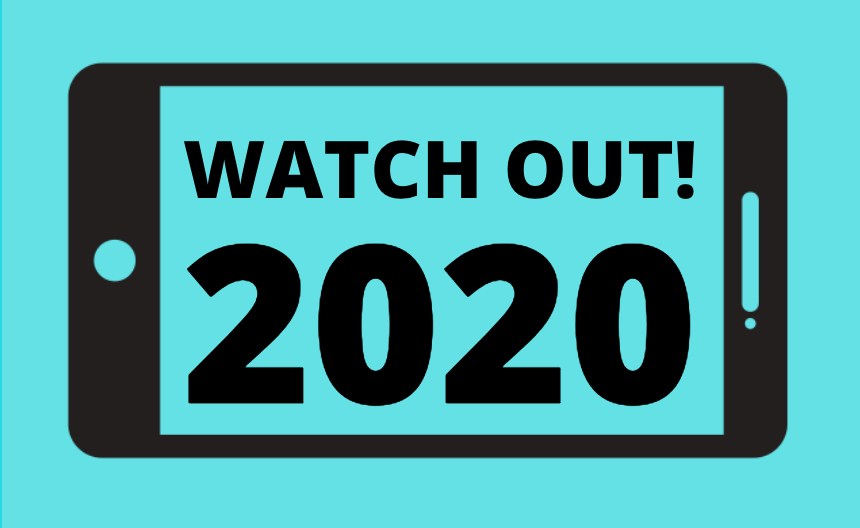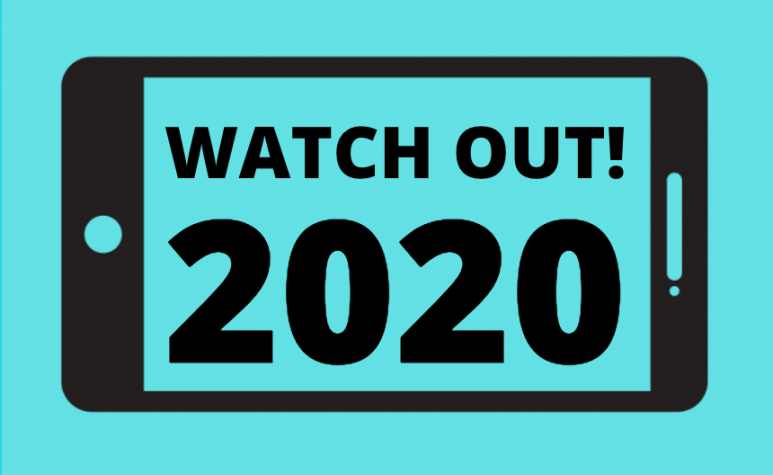The roaring twenties have just begun. We have left behind a decade where online media morphed from being about sharing holidays snaps and poking our Facebook friends, to a defining influence of global politics, social conversations and our mental and emotional wellbeing. Big tech has become the player in the changing nature of journalism and media content, and smart phones have become an essential tool for engaging in the modern world. It has both opened up the door for greater representation in media and more media platforms, and increasing hate speech and disinformation that weaken the public’s trust in media, and threaten to erase all of its positive work.
With great power comes great responsibility—and the pressure is on Big Tech to act responsibly to curtail disinformation and limit its influence over politics, and be a force for good when it comes to media and diversity. Whether it chooses to engage in or ignore these issues will be a defining influence over the intersections of media, technology and our lives during the next decade. But what else should you be looking out for? Here is our breakdown of a couple conversations to keep your eye on in the decade ahead:
Generation Wars

The Baby Boomer generation has defined the past thirty years, particularly since they became the majority of the electorate in the mid 80s. But in the past few years, millennials have also been approaching 30 and 40, taking on positions of power and influence in their own right. Still, media has a way of stoking the flames of generational warfare, with headlines like ‘Why Do Millennials Hate Groceries” or amplifying messages like “Millennials: If You Want To Buy A Home, Stop Buying Avocado Toast.”
As last decade ended, the “OK Boomer” meme became a viral sensation—largely oriented around millennials explaining why their values were different due to the generation before them, due to events like the financial crisis, and greater job insecurity. Its fans saw it as(- an appropriate dismissal of archaic attitudes. Its enemies perceived it as an ageist and immature way of shutting down conversations. Now, as Gen Z enter the workforce and the electorate, we expect a whole new genre of generational clashes to roll out on social media.
Better Representation in Newsrooms & Media
It has long been a no brainer why a diverse newsroom is essential to creating good journalism. As more and more people around the world migrate, making societies become increasingly diverse, a wide range of journalists from a variety of different backgrounds should be a requirement for the best newsrooms to expand their audiences, and ensure that they are creating stories in the public interest. The differences and intersections between race, gender, sexuality, class, all inform the most important stories of our society today, and the authenticity and impact of them relies on having them produced by a member of social group they are about. Still, white, wealthy men are still the majority demographic in the newsroom, and changing that this year has finally become an expected priority.
You Snooze, You Lose: Insta-Content Takes Center State
Over the past decade, SnapChat and Instagram eclipsed Facebook and twitter as the two most popular social media platforms. One of the reasons why is “ephemeral content”—or, video and photo stories that can be viewed once, before they disappear.
This nothing new in the marketing world (commercials, anyone?), but it is starting to redefine online storytelling as well. Some platforms are even optimizing their content for this kind of consumption. TikTok—which started as a youth-oriented platform for users to publish short dance sequences or lip syncing videos—is starting to carve out its own place in the journalism community as well.
While long reads and long form documentaries still have their place, more media will be shared in this Instagram-style format, likely with more social networking video applications popping up, promising to do the same.
TikTok: A New Generation Expresses Themselves Online
Its target audience is under 20, but that doesn’t make TikTok’s meteoric rise any less significant. Now, the platform that once was filled almost exclusively with lip-syncing teenagers and dance challenges is getting more and more political—even though the platform says otherwise. The platform might have promised not to accept political advertising, but political messages are spreading nevertheless with everything from #Trump2020 to #VoteLabour trending on the platform. As many of the teenagers who use TikTok as there main form of social media reach voting age, it is a key space to watch.
Conversations About Climate Crisis Are Heating Up
Most students learn the science behind global climate change in school—but until recently, mainstream media has fallen short in accurately reporting on how this issue is impacting communities around the world. At the end of last decade, they finally paid attention when tens of thousands of students around the world skipped school to march demanding a solution on climate change.
The media is instrumental in shaping this conversation, from what it chooses to cover (last year we looked at why certain activists are covered more than others) to shifting from terminology like “climate change” to “climate crisis.” As we move into the next decade with news of the Australian bushfires, it is important to keep holding the media to account to responsibly cover the subject and exchange knowledge and ideas for solutions.
Is It No Longer Woke To Be Woke?
Over the past decade, the term “woke”—defined as an “awareness of the reality of social and racial injustice”—evolved dramatically over the past decade. It is now a mainstream goal for celebrities, centre-left politicians and white progressives alike, typically shared with viral hashtags and catchy memes.
But the term is actually one of cultural appropriation—and its current iteration almost never references its roots in the civil rights movement. We predict that the term will be whitewashed into oblivion in the next decade, and lose its popularity on social media.
Despite originated in the 1960s by African Americans during the civil rights period and experiencing a renaissance during the Black Lives Matter movement, the term ‘Woke’ evolved dramatically in the past decade, becoming a mainstream goal for celebrities, centre politicians and white progressives. From once meaning being ‘aware of the reality of social and racial injustice’, it now represents an appropriation of minority struggle, and yet, as we enter the new decade, it is seen as a required trait for any progressively minded individuals, especially those in the public eye. Viral hashtags and memes established the desire to be woke in the mainstream, but like other forms of historical appropriation, we predict it will be seen as a white-washed word within the decade, and lose its popularity as a social media sensation.
